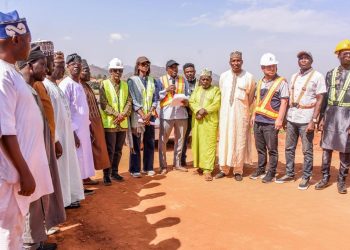By Nkechi Eze
As global attention turns to the upcoming Fourth International Conference on Financing for Development (FfD4), scheduled for June 30, 2025, in Seville, Spain, Nigerian civil society organisations are urging sweeping reforms in both global finance systems and Nigeria’s domestic fiscal management.
The call is contained in a newly launched advocacy report titled “Financing for Development in Nigeria: Sectoral Context and Insights for the Fourth International Conference.” The document was developed by the Civil Society Legislative Advocacy Centre (CISLAC), in collaboration with Oxfam in Nigeria, Christian Aid, the International Budget Partnership, Tax Justice and Governance Platform, Connected Development, and other stakeholders under the Africa Agenda on Financing for Development (Agenda Afrique).
The report offers a candid appraisal of Nigeria’s development financing landscape and warns of a multidimensional crisis fueled by poor domestic revenue performance, inequitable international financial rules, and growing climate vulnerability.
“Nigeria faces a multidimensional financing gap, driven by underperforming domestic resource mobilization, inequitable global financial rules, and increasing vulnerability to climate change,” the report states.
Critical sectors such as education, health, agriculture, and climate resilience are described as severely underfunded. According to the report, education spending falls below UNESCO benchmarks, health spending remains under 4% of GDP, and the country loses over $18 billion annually to illicit financial flows. It further notes that Nigeria’s debt service-to-revenue ratio has surpassed 70%, placing enormous constraints on developmental investment.
While highlighting frameworks like the African Union’s Agenda 2063, ECOWAS Vision 2050, and the UN Sustainable Development Goals (SDGs), the report argues that Nigeria’s core challenge lies in implementation.
“The issue is not a lack of frameworks, but rather a lack of effective implementation due to several core problems,” it states, citing endemic corruption, poor budget execution, outdated data, and fragile public financial management systems.
The report laments that most Nigerian states lack measurable development blueprints, making it difficult to monitor progress or attract investment. “Without decisive and deliberate efforts to bridge these financing gaps at both national and sub-national levels, Nigeria will continue to fall behind,” the report warns.
On the international stage, Nigeria is advocating for a restructured global financial system that addresses the realities of countries with high poverty levels. These demands include reforms to global tax rules, easier access to climate financing, and the overhaul of concessional financing structures.
“We urge the international community to prioritise loss and damage financing, equitable access to green investments, and reform of Special Drawing Rights (SDRs) to better support middle-income countries carrying high poverty burdens,” the report notes.
Domestically, the document lays out policy proposals ranging from the digitisation of tax collection and trade simplification to anti-corruption campaigns and financial de-risking tools aimed at attracting private investment. It also recommends the institutionalisation of peer learning platforms to promote innovation in state-level financing strategies.
A particularly urgent concern raised in the report is Nigeria’s ongoing brain drain crisis. “The continued migration of Nigeria’s skilled workforce, especially young professionals, is directly linked to the lack of inclusive economic opportunities at home. If we fail to invest in youth-centred policies and job creation, our best minds will continue to seek prosperity elsewhere.”
With just weeks to go before the FfD4 conference convenes in Spain, Nigerian civil society is positioning itself as a leading voice for global financial justice.
“This moment is pivotal. As the global community gathers to renew its financing commitments, Nigeria stands ready to champion equity, accountability, and inclusion in the international financial system. The upcoming FfD4 conference presents a critical opportunity to reshape global financing and unlock the investments required for a just and resilient future,” the report concludes.















